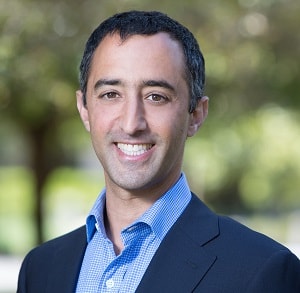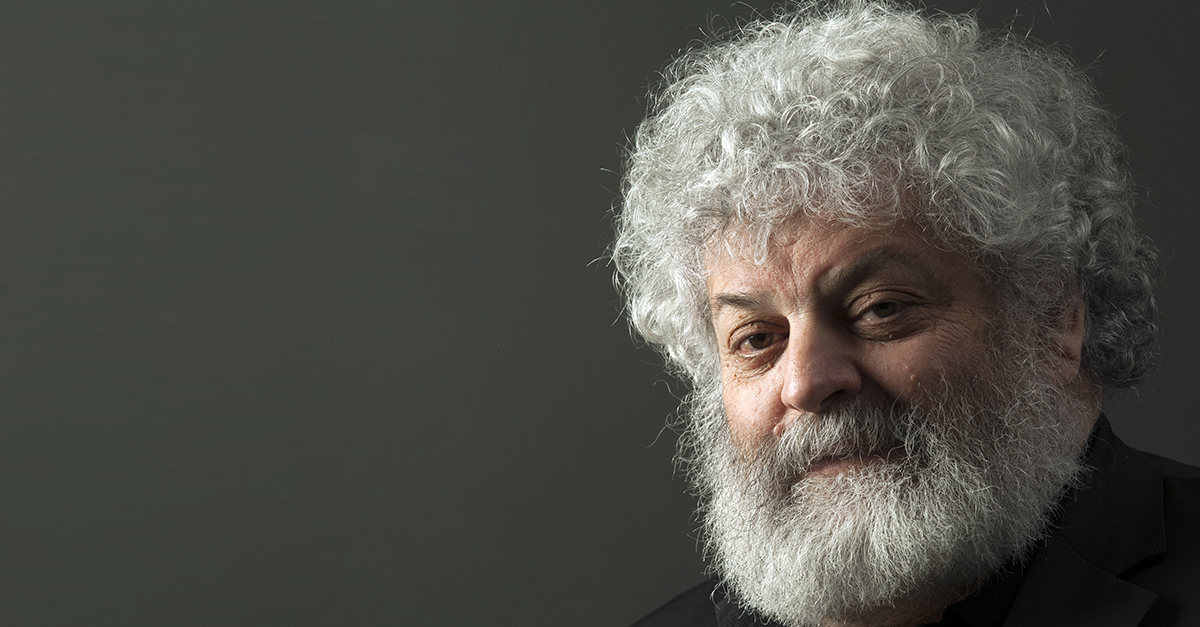Under dramatic new conditions, business is rapidly adapting, with unpredictable long-term effects.

Crises often bring out the best in humans, and the coronavirus pandemic is no exception. While some, perhaps many, were slow to realize the significance of the virus, once reality sunk in many government and corporate actors responded with speed and imagination.
Media companies modified pay walls to broaden access to news about the contagion and provide entertainment for people stuck at home. Museums and opera houses put out virtual tours and shows. Grocery stores waived delivery fees. Banks offered clients the chance to defer some credit payments without penalty. Tech companies offered their computing power to the search for a vaccine.
Care for workers became a higher priority than the economy. Millions of employees were set up to work from home in order to continue to serve customers without risking their health. Apple was one of the first global brands to shutter its stores, protecting both customers and salespeople, and many retailers followed suit. Some companies, including e-commerce platform Shopify, JPMorgan Chase and Citigroup, offered employees some kind of financial bonus.
Covid-related charitable appeals raised millions from individuals and companies. Perhaps most exciting is the way manufacturers and individuals shifted to adapt production to current pressing needs. Italy’s largest ventilator maker, Siare, reached a deal with FCA, Ferrari and Marelli to make ventilators. Similarly, in the US, General Motors announced a new collaboration whereby it will provide logistics, purchasing and manufacturing expertise to help ventilator manufacturer Ventac Life Systems boost its output. Diageo and Pernod Ricard turned distilleries to producing hand sanitizer. Fashion houses such as Armani, Prada and Gucci and apparel makers from Hanes to Zara turned to making masks and hospital gowns. Some folks, trapped at home, started making masks and posting videos of how to do it for others. In sum, COVID-19 is changing behavior in all sorts of ways.
 Gardner, The Motley Fool: Many companies don’t have the resources to do anything but survive. |
In all this human creativity worldwide one could see efforts play out differently from country to country, highlighting differences in governance. Capitalism is practiced in variations around the world, and although US-style shareholder-first capitalism has gained ground in recent decades, the virus has revealed some weaknesses to that approach, providing a further boost to an ongoing reconsideration of shareholder primacy that is being driven by environmental degradation and economic inequality.
Take, for example, the contrast between the response to the virus in South Korea and in the US, which both had their first confirmed cases on January 20. On January 27, South Korean health officials called an emergency response meeting with some two dozen medical companies. “We were very nervous. We believed that it could develop into a pandemic,” Lee Sang-won, an infectious diseases expert at the Korea Centers for Disease Control and Prevention, told Reuters. “We acted like an army.” On February 4 the first test was approved and by the end of the month the nation had tested nearly 300,000 people, in part with drive-through screening centers that mitigated the dangers of getting infected by going to get tested. Testing was used to track those unknowingly exposed and encourage them to self-isolate to stop further spread. That allowed South Korea to avoid authoritarian measures such as the widescale lockdown that helped China slow the epidemic. New cases are now slowing in both countries.
The US political leadership, by contrast, seemed more concerned with tamping down fears to keep the economy humming. The Trump administration was slow to get out working tests, continued to cut funding for agencies such as the Centers for Disease Control and Prevention (CDC), and rebuked state-level politicians who pressed Washington to get equipment to beleaguered hospitals and clinics. At the end of March, the New York Times detailed how a 13-year federal effort to develop and ensure supplies of a simple and affordable portable ventilator came apart after the manufacturer was acquired by a company that makes big expensive ventilators. Throughout March, President Trump was calling, against the advice of national medical experts, to lift social distancing restrictions and send everyone back to work by mid-April—as the virus continued to spread among the untested.
“Iran was the new China. Italy was the new Iran; Spain was the new Italy. New York was the new Spain. Los Angeles may become the new New York,” Los Angeles Mayor Eric Garcetti said on CNN. “It’s going to be in Topeka. It’s going to be in Atlanta. It’s going to be in Louisville. It’s already there.”
South Korea is no less capitalist than the US. But like many Asian nations, its leans toward stakeholder capitalism—a system that returns profits to shareholders while also considering the needs of a wider range of actors in the system: employees, customers, vendors, the community. India, despite widespread poverty, made the difficult choice to save lives via lockdown, rather than continue with business as usual. “The very purpose of a business is to serve the community,” Natarajan Chandrasekaran, chairman of Tata Sons (one of India’s largest conglomerate with businesses ranging from cars to IT), said in a Q&A with Cornell University President Martha Pollack in October. “What comes from the community has to go back to the community multiple times over.”
There are different modalities for incorporating alternate stakeholder views. In Germany, for example, the principle of codetermination—the right of workers to participate in management decisions—puts workers on most corporate boards. Research by Larry Fauver and Michael Fuerst of the University of Miami’s Department of Finance found that such labor representation—by actual workers, not union representatives—brings the benefit of first-hand operational knowledge to corporate board decision-making: “The greater the need for coordination within the firm, the greater the potential improvement there is in governance effectiveness through the judicious use of labor representation.”
Shareholder capitalism focuses almost exclusively on increasing stock price, and embraces efficiency above all. Stakeholder capitalism, on the other hand, will tolerate some redundancy. Japan is notorious for useless public works projects that keep people employed. “I’ve worked in both Japan and Korea, and those companies are very grounded in their employees,” says Thomas Clarke, professor of management at the University of Technology Business School in Sydney, Australia. That redundancy is resilience built into the system.
These differing philosophies are not new. “About 40 years ago in America and Britain there was a move from a balanced conception of what was good for the corporation, to a simple reliance on shareholder value as the measure of corporate success,” Clarke says. “This is a very narrow philosophy, and it became very entrenched.”
It became entrenched not as a natural result of market forces, he adds, but due to policy changes that shifted executive compensation to stock options. “When executives said they were running the company for the shareholders, what they really meant is that they were running it for themselves,” he explains, “because they benefited enormously from these new stock options.”
Executive compensation via stock options has not reached the same popularity in other parts of the world, and shareholder primacy never really took off in Europe and Asia—except among institutional investors. “Asian and European companies raise their own finance. They raise their investment income, essentially, organically through their operations,” he says. “They are less dependent on external shareholders than American or British corporations.”
 Tayan, Stanford: Companies are very satisfied with the work that they do. |
Maximizing efficiency doesn’t always make companies healthier, as varying outcomes in addressing the COVID-19 pandemic seem to bear out. “There was a belief that American and British corporations were more profitable and more efficient. But, of course, that doesn’t really hold true anymore. It’s certainly the case that both the American high-tech companies and financial corporations have been immensely successful over the last 20 years and really have conquered the world,” he says. “However, in other industries, especially in manufacturing, the US has slipped behind and Britain hardly counts. It’s the European and the Asian who have done so well in advanced manufacturing.”
The US has found itself caught out with virtually no capacity to manufacture pandemic supplies, from gloves and masks to high-end equipment like ventilators. And US companies keep little in the way of excess supply—whether it’s a hospital with the bare minimum of doctors, nurses and beds or a service business with no cash set aside for hard times.
By contrast Russia, according to a report by the Kennan Institute for advanced research on Russia and Eurasia at the Woodrow Wilson International Center for Scholars, due to the “enduring legacy of an output-driven Soviet system that prioritized quantity over quality,” is better supplied in some items than others. It has more than four doctors per thousand people, while the US has just 2.6, and more than eight hospital beds per thousand, compared to fewer than three beds per thousand for the US. At the same time, the report notes, Russia’s healthcare system has plenty of challenges of its own, including a decrepit hospital system outside the major cities and very low public confidence.
Yet public confidence in US institutions, including the corporate sector, has fallen too. This past August, the Business Roundtable, a US association of chief executive officers, surprised the world with a statement signed by 181 CEOs of the country’s largest corporations—including such marquee names as Jamie Dimon of JPMorgan Chase, Apple’s Tim Cook, BlackRock’s Laurence D. Fink and Boeing CEO Dennis A. Muilenburg—committing to lead their companies for the benefit of all stakeholders. They pledged to deliver value to customers, invest in employees, deal ethically with suppliers, support the communities in which they do business and generate long-term value for shareholders. Skeptics could be forgiven for wondering whether such pledges are publicity stunts, or “greenwashing.” At the time Boeing’s Muilenberg signed the pledge, his company was embroiled in a scandal over flaws in its 737 Max airplane that caused hundreds of deaths, and that were, it emerged, likely due to prioritizing sales over safety. He was ousted in December.
Still, R. Edward Freeman, a professor of Business Administration at the Darden School of Businesses in Virginia known for his work on stakeholder theory, was among those taken aback by the Business Roundtable action—even though he agrees with the statement—because it was such a dramatic change of tune. “In the ‘90s they were saying that only shareholders matter,” Freeman says. “You have to start somewhere and this is a pretty good start.”
Freeman echoes the Tata chairman in talking about business purpose. “They have to make money to exist, there is no question about that, but entrepreneurs start businesses for a lot of reasons,” he says. “Typically, they are on fire about something. Whether it is Steve Jobs and the personal computer revolution, or John Mackey [founder of WholeFoods] and people eating healthier food, profit is a means to that and not an end in itself.”
Crises = Change
A dozen years ago, the great financial crisis of 2008 triggered a massive change in attitude. More and more investors, especially Millennials, turned against focusing solely on short-term profits. In the last two years, the world’s largest investor, BlackRock, and its CEO Larry Fink, became leading voices calling for companies to embrace sustainability by taking into account a broader range of business interests, including environmental, social and governance issues. Deloitte predicts ESG-mandated assets could constitute half of all professionally managed investments by 2025, with ESG funds rising from around $12 trillion now to above $34 trillion in the next five years.
Natasha Lamb, managing partner at Arjuna Capital, a sustainable and impact investment firm with $250 million in assets under management, says companies respond well. “The smart companies really understand that there are business opportunities to be had when you favor energy efficiency, or diversity or stewardship of natural capital, or create renewable energy solutions,” says Lamb. “It’s really a question of opportunities and risk. The biggest risk is from standing still and continuing to live in a fantasy where the world never changes.”
Corporate directors are convinced that their companies already do well. In the summer of 2019 the Diligent Institute and the Rock Center for Corporate Governance at Stanford University surveyed nearly 200 directors of public and private corporations globally to learn that corporate directors overwhelmingly believe (89%) that it is important or very important for their company to consider the interests of non-shareholder stakeholders such as employees, local communities and the general public. Almost all directors (92%) are satisfied with the job their company does but most say they do not receive the recognition they deserve.
 Freeman, Darden School of Business: Profit is a means, not an end in itself. |
“The most striking result for us is that many of them are obviously very satisfied with the work that they do,” says Brian Tayan, a member of the Corporate Governance Research Initiative at Stanford Graduate School of Business and one of the authors of the study. “Particularly, when it comes to employees, they see them as very valuable stakeholders that they do want to invest in. This goes back to the war for talent and the trends that have been going on in the last 20 years or so.”
Case in point: In January, Microsoft pledged not only to become carbon negative by 2030 but to remove from the environment by 2050 all the carbon the company has emitted either directly or by electrical consumption since it was founded in 1975.
“You could argue that they’re doing it because it’s the right thing to do, or you could argue that they’re doing it because their employee base has been very vocal in the recent years about issues of climate change. And that they are doing it to position themselves as an attractive employer for those people, relative to their competitors at Google or other technology firms,” comments Tayan. “I don’t mean to be cynical. There is nothing cynical about saying it. I think that this is a central force that is driving a lot of the actions; the actions are tied into their business or business model in some way.”
Does ESG investing require the investor to sacrifice or is it simply a new, more expansive understanding of risk? Are programs that address customers’ social preferences drains on the bottom line or enhancements to the customer relationship? With stakeholder capitalism these are not incompatible. A company’s success rests on the success of all its constituents.
Of course, sincerity is critical. At the 2019 Cannes Lions International Festival of Creativity, Unilever CEO Alan Jope called marketing around purpose one of the most exciting opportunities he has seen in 35 years of marketing, but warned against smoke-and-mirrors. “’Woke-washing’ is beginning to infect our industry, polluting purpose,” he said. “It’s putting in peril the very thing which offers us the opportunity to help tackle many of the world’s issues. What’s more, it threatens to further destroy trust in our industry, when it’s already in short supply.”
In truth, even companies that embrace the stakeholder model can’t give exactly equal weight to all constituents. Some are better with customers than, say, the community. Others might have stronger relationships with their suppliers than their own employees. “People have to understand that no one is a saint—nor sinner—all the time,” Freeman says.
Still, most of us “sin” from time to time, and crises can bring out the worst in us, too. Some countries have sent medical personnel or supplies to hard-hit countries. Others have hoarded supplies for their own citizens. Among the stories of sewing circles making face masks and 3-D printers deployed to mold critical ventilator parts, there were also stories of entrepreneurs buying popular supplies and re-selling them at grotesquely inflated prices. Consumers shopping online watched prices rise in real time as demand seemed to outstrip supply. Some bankers have pressed healthcare companies to raise prices of critical medical supplies that are in high demand. This is capitalism, too.
“The current situation of the coronavirus tests the goodwill of all of us,” says David Gardner, co-founder of financial publisher The Motley Fool, and a board member of Conscious Capitalism. Founded in 2010, Conscious Capitalism promotes the idea that “when practiced consciously, business elevates humanity.” Why? An organizational statement answers: “Capitalism works. Period. Its power to positively change lives is unparalleled. But misuse of capitalism’s power by some has led to negative stereotypes such as greed, misconduct and exclusion. This inaccurate way of thinking about business seemed destined to be an unshakable narrative—until now. There is a better way to be a capitalist. A way that will create a better world for everyone.”
“Conscious companies often distinguish themselves by setting a higher standard for their own behavior,” Gardner says. “For our own company, we sent our employees home last week, fully paid for the month to work from home. We have heard back that this has given some of them great comfort, both in the sense that they know how valued they are by us, and in the sense that they can now help out their families and communities.”
At the same time, the current situation offers unprecedented challenges. “Keep in mind,” he adds, “that many companies don’t have the resources to do anything but survive.”



